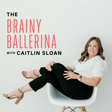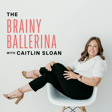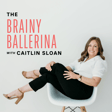
47. Becoming a Martha Graham Dancer: Ane Arrieta’s Path to the Company
In this episode, I sit down with Ane Arrieta, a company dancer with the legendary Martha Graham Dance Company. Ane takes us through her unique path, from training at the Academy of Newport Contemporary Ballet in Rhode Island to discovering modern dance in college, and ultimately joining one of the most prestigious dance companies in the world.
Ane shares behind-the-scenes insights into life as a Graham dancer, from intense rehearsals and international tours to performing historic roles and preparing for the company’s upcoming 100th anniversary season. If you’ve ever wondered what it takes to dance for the Martha Graham Dance Company, this episode is for you!
Key Topics:
✨ How Ane’s childhood Nutcracker performances sparked her passion for dance
✨ What drew her to modern dance and why she fell in love with Graham technique
✨ The resilience required to navigate the dance world as a graduating college senior during COVID-19
✨ How Ane transitioned from Graham 2 to the Martha Graham Dance Company
✨ The physical and mental demands of Graham technique and how she stays injury-free
✨ What a typical week looks like for a Graham dancer—rehearsals, touring, and self-care
✨ The thrill of performing Martha Graham’s iconic works and what’s next in her career
Connect with Ane:
INSTAGRAM: instagram.com/anearrieta
WEBSITE: https://marthagraham.org/
Links and Resources:
Get your copy of The Intentional Career Handbook
Set up ticketing for your next event with DRT (Make sure to mention that The Brainy Ballerina sent you!)
1-1 Career Mentoring: book your complimentary career call
Let’s connect!
My WEBSITE: thebrainyballerina.com
INSTAGRAM: instagram.com/thebrainyballerina
Questions/comments? Email me at caitlin@thebrainyballerina.com


